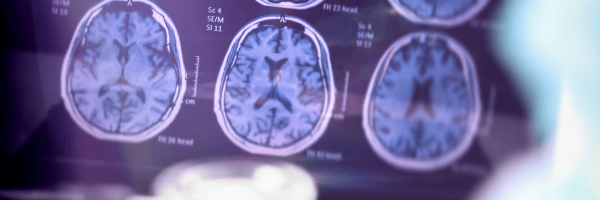Table of Contents:
Quote of the Day
Interesting Stories This Week
Caregiver Support Program WAITLIST
7 Facts, Not Myths About Alzheimer’s
Feedback & Engagement
The Alzheimer’s & Dementia Virtual Care Conference WAITLIST
Care is a state in which something does matter, it is the source of human tenderness.
Interesting Stories This Week:
New Research Lays Groundwork for Early Detection of Alzheimer’s Disease
From Anxiety to Alzheimer’s, Music Makes a Difference
Dementia research, public health infrastructure need $140 million boost, advocates say
Alector Completes Enrollment for Phase II Trial of Investigational Alzheimer’s Disease Therapy
Digital Tech May Reduce Dementia Risk

Caregiver Training & Support Group
Caring for a loved one with Alzheimer’s can be isolating, exhausting, and emotionally heavy, but it doesn’t have to be faced alone.
We’re proud to be launching a Caregiver Training & Support Group, offering you ongoing, expert-led support built specifically for the challenges of dementia care.
What’s included:
Expert-Led Training: Based on a programme used in 35 countries, designed to help carers improve communication, manage challenging behaviours, and build stronger emotional bonds.
Supportive Community: Become part of a private group of caregivers who get it, a place for encouragement, sharing, and inspiration.
Monthly Activities & Resources: New exercises and practical tools each month to help you stay motivated, connected, and resilient.
This programme will equip you with strategies not only to care better for your loved one, but also to take better care of yourself.
And if you’ve already signed up… thank you! You’re in.

7 Facts, Not Myths About Alzheimer’s
Prefer to listen? This week’s article is also available as a podcast episode.
Catch All About Alzheimers wherever you get your podcasts. Great for a walk, a quiet moment, or when reading feels too much.
There are still many misconceptions about Alzheimer’s disease, and these myths can create unnecessary fear or false hope. Understanding the facts helps us better support those living with the condition and encourages early action when symptoms begin.
Here are seven essential truths everyone should know:
1. There’s Currently No Cure for Alzheimer’s
While there’s no cure, new treatments are offering hope. The latest anti-amyloid medications are given through IV infusions and are designed to target and help remove amyloid plaques in the brain. These treatments can slow down the progression of cognitive and functional decline.
2. How a Diagnosis Is Made
Alzheimer’s is diagnosed through a combination of history-taking, clinical examination, and cognitive testing. Brain imaging, such as MRI or CT scans, often plays a role.
Specialist tests like amyloid PET scans or lumbar punctures (spinal taps) may be used to confirm the presence of Alzheimer ’s related biomarkers. Blood tests are also emerging as promising diagnostic tools to eventually replace more invasive methods.
3. Dementia Is an Umbrella Term
Alzheimer’s is just one type of dementia, although it’s the most common, accounting for 60–70% of all cases. Other forms include vascular dementia, Lewy body dementia, frontotemporal dementia, and dementia associated with Parkinson’s and Huntington’s disease.
4. Symptoms Progress Over Time
Alzheimer’s doesn’t look the same for everyone. Typically, people notice a change when daily tasks become difficult. The disease progresses at different rates, but the timeline is often around 5 to 7 years. Some people may live 10 years or more following diagnosis, although they’ll need increasing levels of support.
5. Three Genes Can Cause Early-Onset Alzheimer’s
While rare, certain inherited genes can lead to early-onset Alzheimer’s. More commonly discussed is the APOE gene. We inherit one copy from each parent, and different combinations- such as having one or two copies of the APOE4 allele- can increase the risk.
However, having these genes doesn’t guarantee you’ll develop the condition.
6. Alzheimer’s Develops Long Before Symptoms Appear
The damage from Alzheimer’s begins years—even decades—before symptoms become obvious. During this time, amyloid plaques and tau tangles form in the brain, slowly disrupting how nerve cells communicate. These changes often begin well before the age of 65, which is typically when symptoms start to show.
7. Early Diagnosis Really Matters
Catching Alzheimer’s early can make a real difference. People with mild cognitive impairment may benefit from new treatments, and early diagnosis allows access to support services, information, and future planning for both the individual and their family.

We Value Your Feedback
Did you find the insights in the ‘Alzheimer’s Lifeline’ report helpful?
We’re always looking to better support caregivers like you and could really use your help to understand how.
Would you mind taking a quick survey? It’ll just take a few minutes, and your answers will help us shape our support to better suit your needs.
Alzheimer’s & Dementia Virtual Care Conference
If you’re caring for someone with Alzheimer’s or another form of dementia, you don’t have to figure out the journey alone.
We’re excited to invite you to join the waitlist for our Alzheimer’s & Dementia Virtual Care Conference, a one-day online event created just for caregivers like you.
Here’s what you can expect:
Inspiring Personal Stories: Hear from real caregivers who understand what you're going through and share their lessons and encouragement.
Practical Tools & Strategies: Get useful techniques to help with everyday challenges like communication, routine, and self-care.
Expert Guidance: Learn from leading dementia care specialists in a supportive, welcoming environment that understands your reality.
This conference is designed to help you feel more confident, more connected, and more supported.
And if you’ve already signed up… thank you! You’re in.